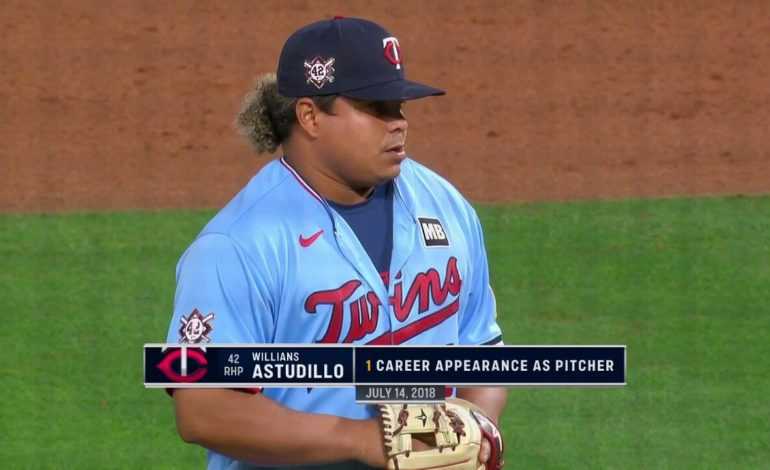LaMarcus Aldridge announced his retirement from basketball Thursday, ending what was by all measures an exceptional NBA career.
In his parting statement he mentioned dealing with an irregular heartbeat during his final game with the Nets as the impetus for his decision, and knowing this wasn’t the first time a heart-related ailment had sidelined Aldridge – the immediate reaction was obviously concern for his well-being. Thankfully, it seems he will be OK.
As a Portland native and someone who has followed Aldridge’s career since he was drafted by the Bulls and traded to the Trail Blazers in 2006, his announcement today has sparked some unexpected reflection.
I grew up with LaMarcus. I adored and feebly mimicked his fadeaway and finesse in the low-post. In the end, I always thought he’d end up back on the Blazers.
Drafted by Chicago second overall in the 2006 NBA draft and sent to Portland on draft night for Viktor Khyrapa and Tyrus Thomas (dear God, Chicago executives), Aldridge came to a Blazers team that had gone 21-61 the previous season with new head coach Nate McMillan. For younger fans like myself, there hadn’t been much reason to be optimistic about a Portland team in the midst of a three-season playoff drought. This draft class, though, had promise. It was easy to get excited about Aldridge’s shooting ability and athleticism, but entering the league at 6’11” and 235 pounds, he was a string bean. As someone who was chosen to ultimately take the spot of 6’9” 250-pound bruiser Zach Randolph, it was difficult to see how this athletic stick figure from the South would hold his own against the size and strength of his fellow NBA big men.
The Early Days
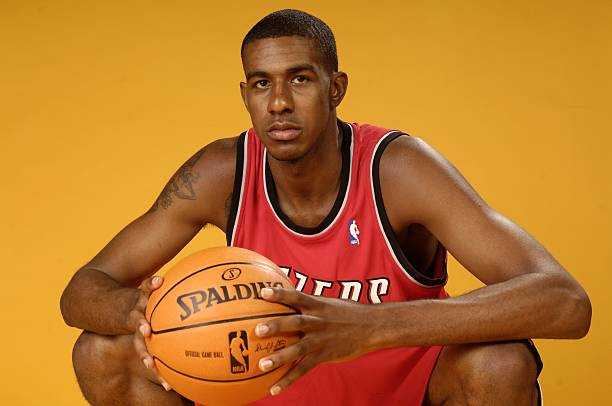
Upon entering the league, Aldridge wasn’t bulky enough to physically match up with a class of NBA big men still defined by their imposing statures and brute strength. Still rehabbing from shoulder surgery he’d undergone the previous summer, Aldridge’s introduction to the league was gradual. Despite what in future years would become a prickly relationship, this slow immersion was ultimately a positive for Aldridge as it gave him the opportunity to learn from Zach Randolph what it would take to become successful at the NBA level.
Fellow first-round pick and eventual Rookie of the Year Brandon Roy contributed immediately. Roy started in 55 games while averaging 16.8 points-per-game and shooting just under 38% from behind the 3-point line. Aldridge, on the other hand, took some time getting enmeshed in the flow of things. He averaged just 9 points and 5 rebounds per game, but a late-season injury to center Joel Przybilla thrust Aldridge into a starting role where he showed glimpses of his exceptional offensive talent.
Despite not exploding onto the scene the way Roy had, Aldridge was the second overall pick in the draft and with that level of investment, the Blazers were going to give him every opportunity to succeed. The summer after LaMarcus’ rookie season, Portland dealt Zach Randolph to the Knicks. The path was being cleared for Aldridge to become a true, everyday starter.
It worked out pretty well.
LaMarcus Aldridge in 2 graphics pic.twitter.com/zreEFmU7z0
— Kirk Goldsberry (@kirkgoldsberry) April 15, 2021
Over the course of his next eight seasons with the Blazers, Aldridge started every game he played in. To this day, he remains top-five all-time for the franchise in games and minutes played, field goals, points, and blocks; and is the franchise leader in rebounds. He was a 4-time All-Star with the Blazers; helping the team to the playoffs in 5 of his 9 seasons in Portland.
When he left the Blazers for the Spurs following the 2014-15 season, emotions from fans around Portland were high. In many ways, they still are. People knew he was a Texas kid and understood his desire to go home – but he was also our guy. The Blazers acquired him on draft night and had stuck with him through multiple iterations of the team; and while it was easy to understand his motivation for leaving, it was difficult to fathom how it never all clicked during his time in the Pacific North West.
‘What If?’
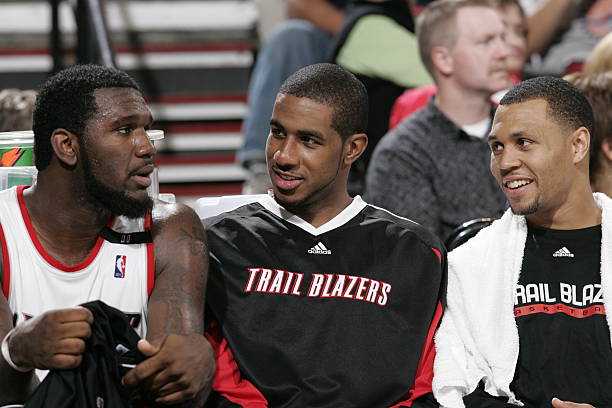
Even with the overwhelming success of Aldridge (it’s absolutely fair to say he’s one of the most talented post-players of all time), and the relative success of the Blazers during his tenure; his legacy in Portland is shrouded in question marks and, ultimately, hurt.
Portland had the first overall pick in Aldridge’s second year, the 2007-08 season. For those who don’t remember, that was the infamous Durant vs. Oden draft, and Portland opted to select Greg Oden with their pick. During his time in the NBA, Oden suffered from debilitating knee injuries and played just 82 games over 3 seasons with Portland before leaving the league as what is considered one of the worst draft busts in league history. What if fortunes had been different and Oden could have managed to stay healthy? What if, instead of Oden, the Blazers would have followed my mom’s advice and selected Kevin Durant?
Brandon Roy, the Rookie of the Year in his first season, unfortunately developed career-ending knee issues of his own; and despite looking like a franchise cornerstone and perennial all-star himself, Roy was incapable of playing significant minutes by the 2010 season. What if Brandon Roy remained healthy? What if Roy and Oden both stayed healthy? In the 62 games Aldridge, Oden, and Roy played together, the team went 50-12.
What if, indeed.
The biggest question, though, and the one that I think impacts fans’ memories most, is what if LaMarcus could have just gotten along with Damian Lillard? Aldridge was the team’s rock. Through all the uncertainty with injuries to Roy and Oden, all the front-office promises that fell short, and even a head coaching shift from McMillan to Terry Stotts, LaMarcus was the stabilizing force of the franchise.
Then there was the 2012 draft – and with it, the arrival of Damian Lillard.
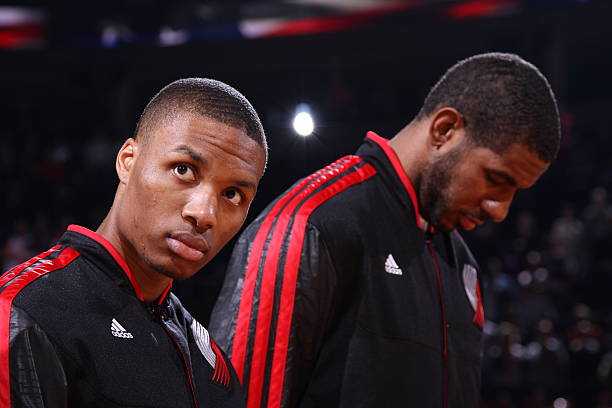
Lillard won Rookie of the Year in his first season. By his second season, he had surpassed Aldridge in Win Shares. In Portland’s first-round playoff series against the Rockets that year, Lillard hit the now infamous series-winning 3-pointer as time expired.
Much has been written about Aldridge’s frustration with how the team began marketing their two franchise players with the emergence of Lillard’s stardom. He felt undervalued and under-appreciated. He felt hurt. Following that post-season, we slowly started hearing murmurs about Aldridge wanting a chance to lead a team; an opportunity he didn’t feel existed with Lillard garnering so much attention. I’m sure to LaMarcus there was a degree of; ‘Sure, Damian hit the series winner in Game 6, but I scored a combined 89 points in the first two games of the series; doesn’t that deserve some respect, too?’
After those playoffs, Aldridge played just one more season with the Blazers. In the midst of what appeared to be an extremely promising year, shooting guard Wesley Matthews tore his Achilles during that 2013-14 season. With that injury, any hopes of a deep playoff run disappeared. Even before that injury, though, the writing was on the wall. You heard he might want to be closer to Texas where his family still lives. You heard he might be listing his apartment. Most of all, though, you could just see it. He was done with Portland – the team, the fans, his teammates, the hurt.
After the season he signed with the San Antonio Spurs.
A Legacy of Questions
For at least the first two seasons following his departure from the Blazers – it could have been more – every time Aldridge returned to Portland he was met with boos. Not just during the starting lineup announcements; every time he touched the ball. Fans started referring to him as LaMarsha – a monicker which even then should have been recognized as problematic; the general sentiment towards him was just overwhelmingly negative. To be fair, Portland fans had reason to be frustrated and hurt.
The summer prior to his final season, Aldridge stated he would re-sign in Portland. He told reporters “I want to be the best Blazer. Ever.” He left a year later. Once in San Antonio, he made comments about his desire to one day return to the Blazers and play with Damian Lillard again. This season when he was bought out of his contract with San Antonio and could have gone anywhere that wanted him, he crossed Portland off of his list almost immediately.
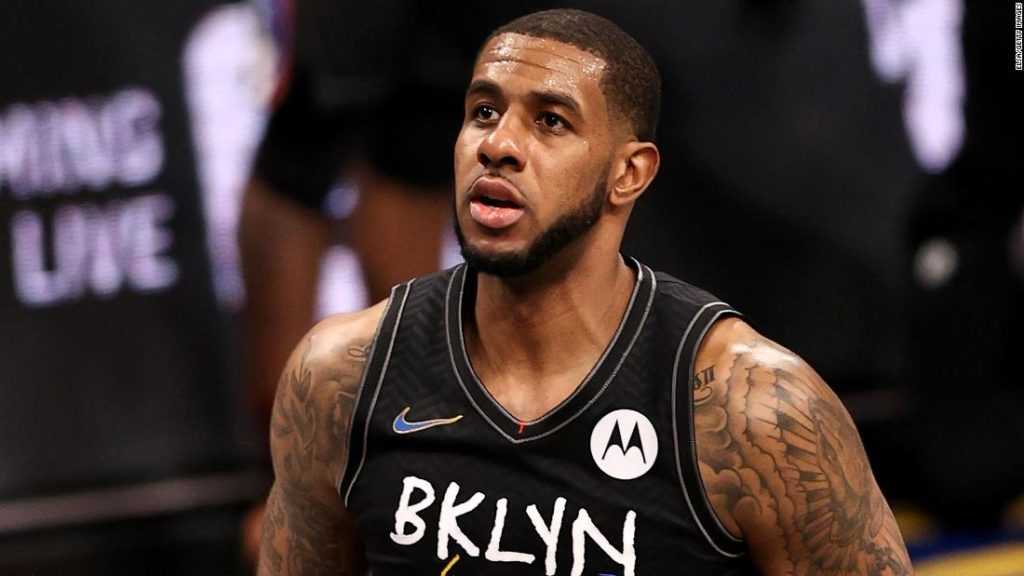
Regardless of the talking heads in sports media pointing to Aldridge’s arrival in Brooklyn this season as the final nail in the formation of some unbeatable super-team, the truth is his prime playing days were behind him. He still had his soft shooting touch and unflinching post-moves, but he was a few steps slower on defense and was no longer a player you could depend on for 30+ minutes per game. Maybe if this heart condition hadn’t emerged and he’d been a role player on a championship Nets team, Blazers fans would have felt a sense of resentment; like he got the last word in and won the breakup.
Personally, I would have preferred that ending to the one we got.
When you consider the core of what Aldridge did to upset Blazers fans; it was about choices. He chose to say he wanted to stay with the team. He chose to leave. Later, he chose to mention a desire to return. He ultimately chose not to do that. For a man who consistently made it a point to engineer his destiny based on what he wanted, everyone else be damned; it’s difficult to look at the way his playing career ended without a degree of empathy. His retirement wasn’t so much a decision made by him as it was made for him; stripping him of the defining characteristic by which many of us have come to understand him.
In Portland, he was loved at times. He was hated, too. Fans are a notoriously possessive bunch; and in a market like Portland where the Trail Blazers are the only show in town, it doesn’t always feel like perspective is a priority. Yes – he left, but he also spent nine seasons representing the city like a professional and embracing it as his own; making appearances on Portlandia and volunteering throughout the community. LaMarcus was a soft-spoken, seven feet tall wall of introverted contradiction. It wasn’t always great, but it was more good than bad.
I just always thought he’d end up back on the Blazers.
Follow me @jordan_kirsch on Twitter and check out the Belly Up Basketball page for all the latest from the NBA hardwood.





